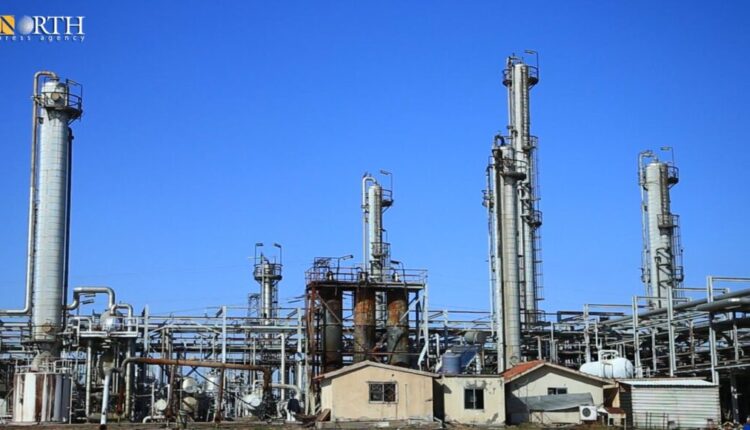
QAMISHLI, Syria (North Press) – Qamishli-native Nalin Saleh has not been able to bathe her four children for over a month due to a general lack of electricity in the region.
Saleh, 33, said that during the day, “We only get one hour of subsidized electricity, and in that hour it is cut off more than once. How can we heat water during this hour?”
Like the majority of the population, she cannot heat water on the stove. “Heating the water on stoves doubles our expenses, not to mention the constant difficulties we face in obtaining gas cylinders,” she added.
For more than a month, the Hasakah Governorate has witnessed a major decline in electricity hours, which today hovers at around an hour or less per day, imposing additional hurdles on civilians going about their daily chores.
Autonomous Administration of North and East Syria (AANES) officials said the electricity rationing is because two gas turbines at the Suwaydiyah station, which feeds the substations, are out of service.
Akram Suleiman, Co-chair of the AANES Energy Office in the city of Qamishli said, “The primary reason for the reduced electricity hours is the Turkish shelling of oil facilities and the Suwaydiyah gas station.”
“The shelling led to a 50 percent decline in the production of clean gas; this has affected the production of electricity accordingly,” he stated on January 26.
On November 23, 2022, Turkish forces launched airstrikes against oil facilities, as well as the Suwaydiyah and Taqel Baqel electricity stations near Derik, in the far northeast of the country, causing major damage.
The number of currently operating turbines at the Suwaydiyah station are only two out of four, Suleiman added.
He says that the process of repairing and restoring them is ongoing. “The reality on the ground is extremely complicated as a result of the embargo imposed on this region from all sides, making it more difficult to obtain the necessary maintenance parts for the gas station.”
He stressed that they face many difficulties in providing electricity for vital and strategic facilities in Qamishli and Hasakah.
Suwaydiyah station was the only gas station in northeast Syria. The daily production was 500.000 cubic meters of clean gas feeding electric power turbines to produce 40 megawatts of electricity. After the Turkish strikes, this has been reduced to half the amount, according to a previous statement by Agid Abdulmajid, an official at the station.
Dam Water
For months, Turkey purposefully prevented water from reaching the Euphrates River, leading to a significant reduction in water levels, which negatively affected the production of electricity.
Hamoud al-Hamadin, an official at the Tishreen Dam, told North Press on January 12 that the Euphrates River has turned into “a small water spring, very different to the river we used to see.”
“Now we are in mid-January, and the water flowing in from Turkey is at its lowest level, and the lake level has receded by 5 meters,” he added.
Syria’s share of the water coming from Turkey is 500 cubic meters per second, according to the international agreement signed by the two countries in 1987. The actual flow of water is now less than 200 cubic meter.
The targeting of energy resources has become a major challenge for the population in northeast Syria as electricity prices have skyrocketed.
Open threats
In recent years, Turkish airstrikes and attacks on northeastern Syria have destroyed many vital facilities and infrastructure.
Since May 2022, Erdogan has sought to get a green light for a ground operation in north Syria in order to complete a 30 km-deep ‘safe zone’ into Syrian territory.
On November 20, Turkish forces initiated a ruthless air campaign against northern Syria in which vital facilities and infrastructure were targeted.
Turkish officials said that the bombardment was to be followed by a ground invasion, whose zero hour could be set at any moment.
On December 11, 2022, Erdogan revealed that he had asked the Russian Federation to abide by its commitments regarding the 2019 signed Sochi agreement, which stipulates a cessation of all military action in areas in northern Syria and the withdrawal of the Syrian Democratic Forces (SDF) to 30 km away from the border.
AANES officials have accused Turkey of targeting the livelihoods of millions of residents who refused to leave the country despite the living difficulties.
Shinda Shahin, 29, from the Mahmakieh neighborhood in the city of Qamishli, is worried about the power outages, as she cannot fill her household water tank.
“We are supplied with subsidized electricity one hour or less per day during the late night hours, and we do not benefit from it,” she told North Press.
Shahin is forced to operate her private generator for hours in order to be able to fill her household water tank and finish her chores, which poses an additional financial burden on her family.
